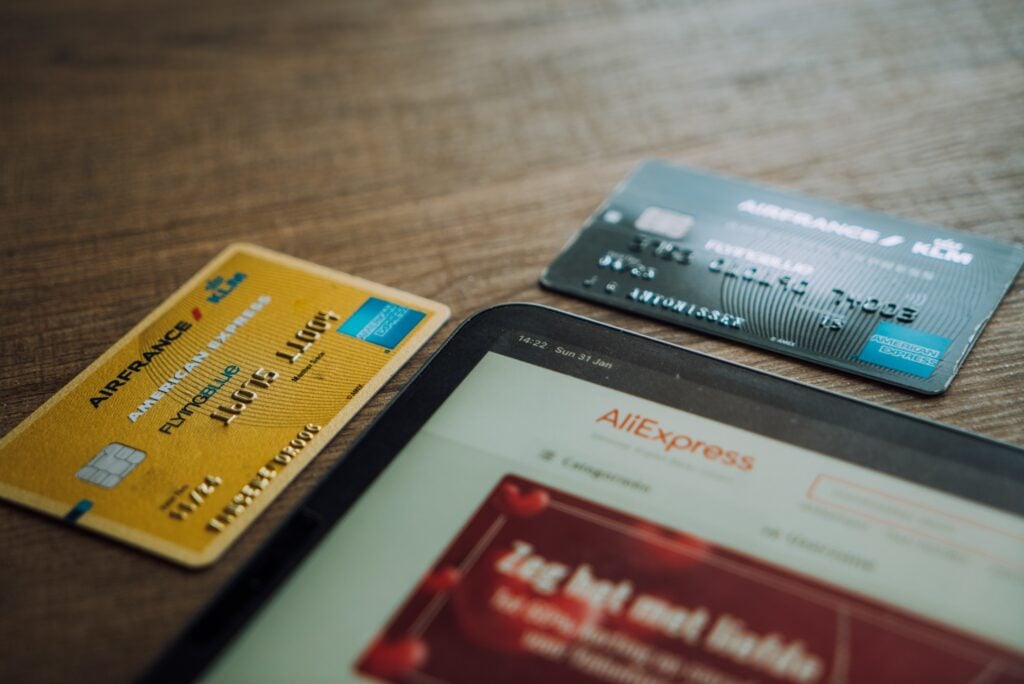Student credit cards (9 point guide)
In this brief blog, we will cover student credit cards, the benefits of student credit cards and how to get one.
What are Student credit cards?💪🏻😁
Student credit cards are credit cards specifically targeted towards university and college students who don’t have enough credit history to be approved for a standard credit card. They are more typically offered through student bank accounts. Student credit cards are similar to credit builder cards as they accept people with lower credit scores, offer high APRs and have low credit limits to avoid you getting into serious debt.
Because student credit cards are seen as a more risky area to lend by credit card providers, the APRs are much higher. This means you should try to follow good credit behaviour to avoid incurring high APR charges.
You should;
Only borrow what you can afford to pay back
Make at least the minimum credit card repayment each month
Avoid using your credit card for ATM Withdrawals
Check for fees to use your credit card abroad
Try to pay off the card in full each month
Keep within your credit limit
How do student credit cards work?
Student credit cards are just like any other credit cards but these credit cards are specifically marketed at students. Student credit cards have some unique features which differentiate them a bit. They will usually have low credit limits, you may be able to qualify for them based on a low credit score.
To be eligible for a student credit card you will usually need:
You’re aged 18 or over
You hold a student bank account with that provider
You are enrolled on a course for at least two years
You have lived in the UK for at least three years

Advantages of a student credit card
Some of the advantages of a student credit card are listed below.
Credit cards have payment protection cover:
Due to the consumer credit act all goods purchased using a credit card which are over £100 are covered by the payment protection scheme. This means if goods are faulty or were not delivered, then your credit card provider must refund you. This cover does not apply to two seperate transactions not amounting to £100 separately, even if they were bought in the same store.
Student credit cards help build your credit score:
Student credit cards help build your credit score as they reflect how often you repay your monthly credit card debt on your credit file. They also reflect your credit utilization( this is how much credit you use in relation to your credit limit) and a low credit utilization will aid your credit score whilst utilizing your credit to its limit will reflect negatively on your credit file.
Access to an emergency fund
Student credit cards help by providing you access to emergency funds in case you have any financial emergency which requires immediate help. This may be a cheaper method of borrowing than payday loans or other alternative short term finance.
Cashback and rewards
Student credit cards may also provide cashback and rewards which will be targeted towards students such as cashback for grocery shopping(which you will do a lot of when living on campus) or cashback on things you may do such as going to the cinema etc
Interest-free period
Some student credit cards will have interest free periods which are long enough for you to put your finances in order before you start repaying any credit card balance you owe.
Pay for expensive items
Student credit cards allow you to buy more expensive things which you may need and spread the payments over a long period. This could be things such as paying a down payment on your rental accommodation.
No annual fees
Most student credit cards do not have an annual fee.
Easy to qualify for
Most student credit cards are very easy to qualify for as they are targeted towards students with little or no credit history.

Disadvantages of a student credit card
Some of the disadvantages of a student credit card are listed below.
Student credit cards are a bit restrictive:
They tend to offer lower credit limits(usually around £500) and higher APRs are standard. Some may see these are prejudice terms and there might be some truth to that. Student credit cards also have higher minimum payments: these are the minimum you must pay back every month to ensure your credit card provider does not charge you any fees.
Note: Although paying the minimum payment will prevent you from incurring any further charges you will still get charged interest on the difference between your minimum payment and what you owe per month. This could easily turn out to be very expensive for you and should be avoided at all cost.
Avoid the ATM:
Using your credit card at the ATM will incur you huge fees up to 3% of your withdrawal and there are no interest free periods for using your credit card at the ATM. This is even made worse if you use your credit card at a foreign ATM as not only will you incur this charge you will also incur an exchange rate charge.
High APRs
The APRs on student credit cards are much higher as the credit card providers see this area as a very risky area as most students won’t have a full-time job and they may not be able to pay back what they have borrowed. To compensate or to balance the books the high APRS are charged so those who pay back could essentially cover the costs of those who borrow on their credit cards but don’t pay back.
Rejections can damage your credit score.
Because getting rejected for any credit application can damage your credit score you should only apply to credit cards which you are sure you will be approved for.

Finding the best student credit card:
To find the best student credit card you must compare all of them equally. A few things you should look at include:
- The APR
- The interest-free period
- The rewards
- The fees and charges applicable
- The credit limit and monthly minimum payment
What is the best credit card for a student?
The best credit card for a student will depend on your personal circumstances and the different student credit cards you are eligible for. The best credit card for a student will usually have rewards and perks which students may need for brands students will likely shop at. The best credit cards for students will have a competitive APR or a 0% purchase APR for a term such as 3 years which allows a student to borrow without any interest throughout their university years.
What is the easiest student credit card to get?
The easiest student credit card to get may be one which requires a cosigner, little or no credit history and likely has a little credit limit. Student credit cards don’t have to be marketed as student credit cards. In fact, the Vanquis credit card for those looking to build credit may be the easiest student credit card to get.

Best student credit cards
Below we have listed some of the best student credit cards available but you may not necessarily be eligible for all of these credit cards. To see what credit cards you are available you should use a credit card eligibility checker.
The best student credit cards:
| Provider | Product name | Representative APR | Representative example |
| Vanquis | Chrome 24.7% Credit Card | 24.7% APR variable | Assumed borrowing of £1,200 for 1 year, at a Purchase Rate of 24.7% (variable), representative 24.7% APR (variable). Credit available subject to status. |
| Tandem | Journey Credit Card | 24.9% APR variable | Assumed borrowing of £1,200 for 1 year, at a Purchase Rate of 24.9% (variable), representative 24.9% APR (variable). Credit available subject to status |
| Tesco | Bank Foundation Clubcard Credit Card | 27.5% APR variable | Assumed borrowing of £1,200 for 1 year, at a Purchase Rate of 27.5% (variable), representative 27.5% APR (variable). Credit available subject to status. |
| 118 118 | Money Credit Card | 28.9% APR variable | Assumed borrowing of £1,200 for 1 year, at a Purchase Rate of 0.0% (fixed), with a £168 annual fee, representative 28.9% APR (fixed). Credit available subject to status. Monthly subscription fee of £14 (equivalent to annual fee of £168). Total amount payable £1,368. |
Is a student credit card a good idea?
A student credit card may be a good idea as it will help you build your credit score(which you may have little of, as you may not have taken out any credit product before). A student credit card may also be a good idea as it will provide an emergency fund which you can dip into if need be.

What’s the difference between a student credit card and a regular credit card?
A student credit card and a regular credit card are the same in practice. The features which differentiate them are things such as the credit limit on offer. For a student credit card, the credit limit will typically be around or below £500 whilst a regular credit card may have a much higher credit limit based on the applicant’s affordability.
Do you need a job to get a student credit card?
No, you may not need a job to get a student credit card but the credit card provider may expect you to have some form of income that doest include your student loan. This could be maintenance funds from your parents or money from part-time work.
How to get a student credit card?
To get a student credit card you should use a credit card eligibility checker to see what credit cards you may be eligible for. Compare your credit card options and then make a decision on which you think may be the best for you to get.
You may also want to consider asking your bank if they can offer you a student credit card. Your bank will usually be more willing to offer you a student credit card as they have access to your banking data and can see how much comes in and goes out of your bank account.

What happens to your student credit card when you graduate?
Once you have graduated, you can still continue to use your student credit card but you may find that you are now eligible for a better APR credit card which may even offer better rewards and a better introductory period. This is because if you have made your credit card repayments on time each month you will usually find that your credit score has increased and this makes you more eligible for better credit products. Once you get a job with a regular salary, you may also find your credit card options increase significantly.
Alternatives to a student credit card
You may not necessarily need a student credit card. Most student bank accounts will offer an overdraft facility of about £3,000 will very favourable repayment terms. This means you can borrow from your bank at a rate that may even be cheaper and payback whenever you want.
You may also be able to find a normal credit card which isn’t branded for students and offers you a lower APR.
In this brief guide, we discussed student credit cards. If you have any questions or comments please let us know.
If you need financial advice and you live in the UK then you could contact the Money Advice service over the phone or via chat for impartial advice.
You can also contact the debt charity “Step Change” if you are in debt and need help.


